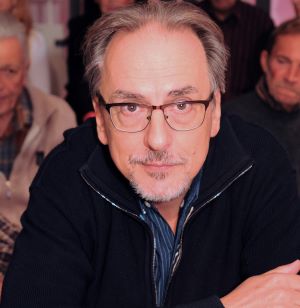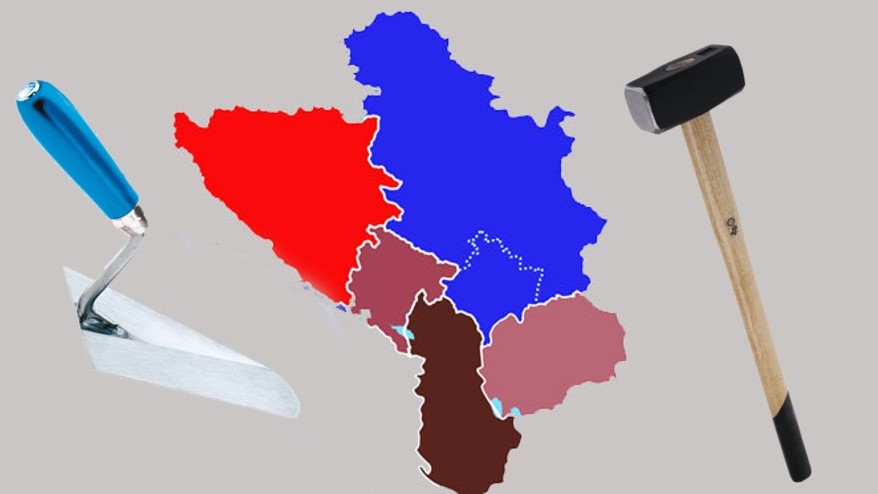Instead of the Berlin process Berlin walls are being built over here with great enthusiasm, and they are even more beautiful, bigger and older than the original.

Voja Zanetic
If we’re going to be very honest and direct, I don’t even remember what happened yesterday, let alone almost twenty years ago. Apparently, it was the Berlin process that began almost twenty years ago. Whatever that is – my subconscious says; my conscious, on the other hand, says: check the Internet.
Well, the Internet reminded me that the Berlin Process is an intergovernmental cooperation initiative that aims to revitalize multilateral ties between the Western Balkans and certain EU countries, as well as to improve regional cooperation of the Western Balkan countries in the field of infrastructure and economic development. The initiative, my memory now refreshed, began with the first conference on the Western Balkans in Berlin in 2014. The Berlin process was initiated by the then-German Prime Minister Angela Merkel, after the then-President of the European Commission, Jean-Claude Juncker, announced that there would be no EU enlargement for the next five years. There. Memory restored.
And as a side note, Mr. Junker was more than right.
* * * * *
My hazy memory partially cleared up, so I recalled the fact that there used to be a Vicinity TV programme, and one of its episodes was recorded during the second conference held in Vienna in 2015. The guests were the former and current leaders of Serbia and Albania – Edi Rama and Aleksandar Vučić. The opening column of the episode was given by yours truly. The TV Vicinity is no longer, and the Berlin Process, probably out of solidarity, appears less and less on television. But let’s go back to the present day. There is no benefit in staying in the past, as is becoming increasingly obvious.
In the present day, a brief overview of the situation tells us that as a contrast to the occasionally reappearing Berlin process, we now have an Open Balkans. Talk of the (Balkan) town(s) is that this one is, in turn, an “initiative” behind which the United States of America is discreetly peeping and the support of the European Union, including the aforementioned “certain countries”, led by Germany, is indiscreetly lacking. Furthermore, even some countries of the so-called Western Balkans are emotionally closed to the so-called Open Balkans, so all this regional reconciliation/cooperation/association/whatever took on recognizable and typically Balkan outlines.
To translate – there is disagreement on how to reach agreement. And the only thing connecting the Berlin process and the Open Balkans at the moment are Edi Rama and Aleksandar Vučić, who regularly come to the meetings of both initiatives, in the capacity of Essential Actors. And yes, here I am again writing a column about the two of them.
Eight Berlin-Open and practically stationary years later.
* * * * *
History has an ugly habit of mocking beautiful historical meetings, conferences, initiatives and visions. Well, in that sense, between the optimistic beginnings of the Berlin Process – as well as the semi-compatible Open Balkans – and the days in which we currently live, there has been one pandemic and an It in Ukraine. And both of those two corrupt historical shenanigans have influenced people and nations to distance themselves from each other, so that any form of approaching becomes more and more difficult. Therefore, it is not strange that the Berlin process and any other process of association, in this exact Vicinity and in this exact time becomes Kafkaesque, full of administrative, logical and various other snags, which lead cooperation into oblivion rather than towards the future. Instead of the Berlin process Berlin walls are being built over here with great enthusiasm, and they are even more beautiful, bigger and older than the original. We don’t need a process, but a hammer (pictured). And it should not be held by Brussels, Washington and other bureaucrats, but by those who have been holding the brick, mortar and trowel (pictured) for more than three decades. If they won’t do it, let’s find someone who will.
That’s it on the topic, plus what the other columns say this week.
And then our poor memory will return on its own accord.



Leave A Comment